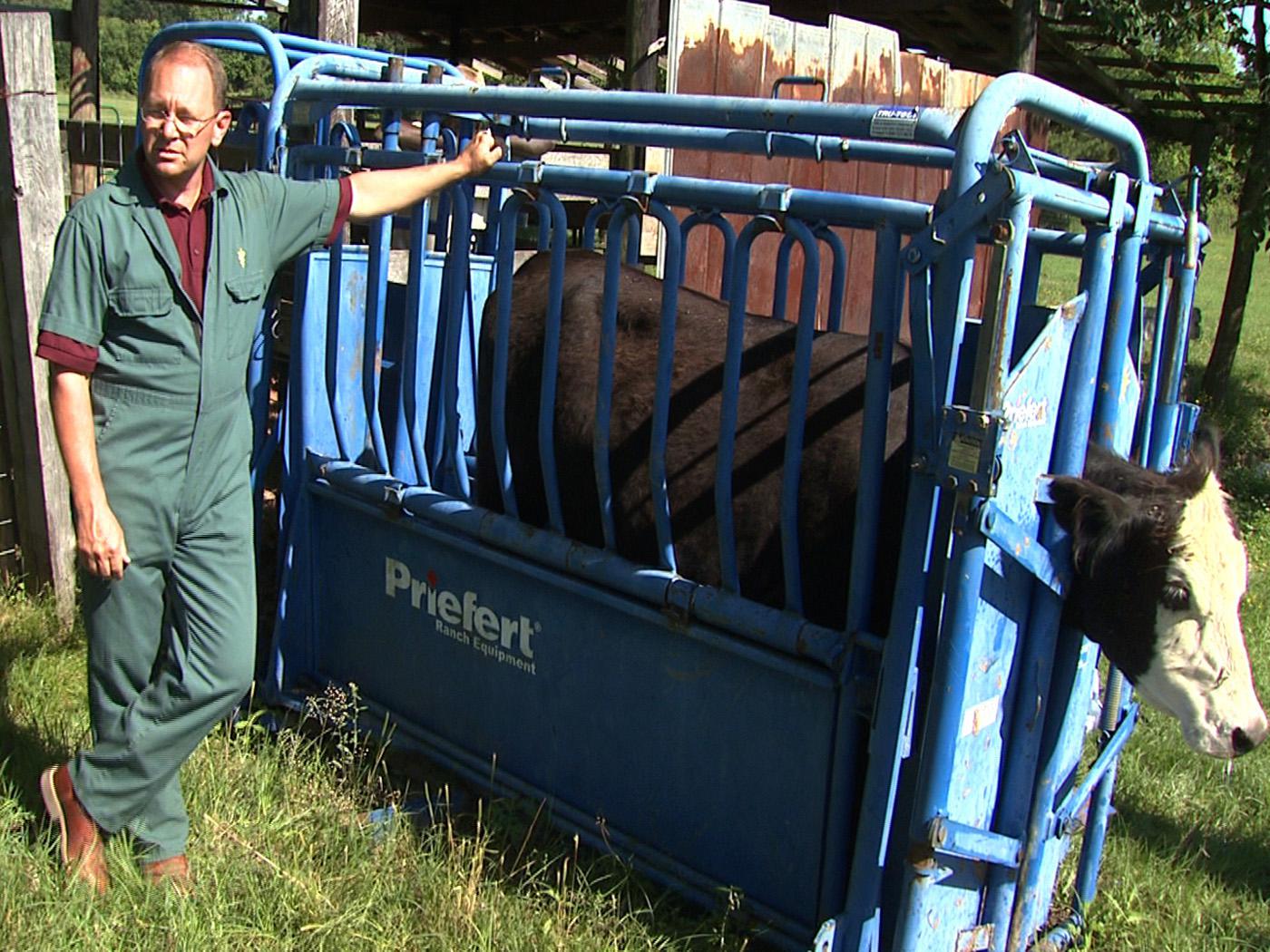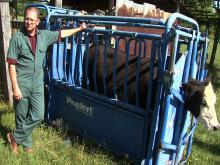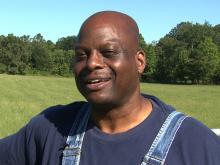Information Possibly Outdated
The information presented on this page was originally released on August 20, 2009. It may not be outdated, but please search our site for more current information. If you plan to quote or reference this information in a publication, please check with the Extension specialist or author before proceeding.
Self-help co-op enjoys partnership with MSU
MISSISSIPPI STATE -- For almost 25 years, a Winston County self-help cooperative has been doing what its name implies -- helping people help themselves -- by providing educational information and establishing partnerships with experts.
A partnership with Mississippi State University’s Extension Service and MSU’s College of Veterinary Medicine are an important part of the co-op’s monthly programs. The partnership also makes it easier for specialists to assist producers when needed. Such was the case when the co-op hosted a recent cattle field day for its members.
The field day took place at the co-op’s 40-acre farm east of Louisville. It highlighted ways the co-op’s leadership uses the resources of the MSU Extension Service and the College of Veterinary Medicine to make a difference in the rural community.
During the event, participants watched as several heifers were tested to see if they were pregnant and in good health.
"These animals will be given to some of our members for care, so we’re working with Extension and the MSU College of Veterinary Medicine to make sure that we have good health management on the animals here on our farm," said co-op president Frank Taylor.
Taylor works closely with MSU throughout the year to serve the needs of co-op members. He schedules field days and regular meetings, and the subject matter covered can extend far beyond livestock.
Livestock health management is a primary topic because producers need replacement heifers for their herds. One of the heifers at the farm, a lively 2-year-old, has been important to the co-op because the animal will soon be given to a co-op member for care.
The co-op works with Heifer International to obtain livestock, such as this particular heifer, for its members. Adults and 4-H Future Generation Club youth at the field day watched as a team of doctors and students from the MSU College of Veterinary Medicine examined and vaccinated the heifer to maintain her good condition.
"Her body condition score is a 5 out of a possible 9, so she’s right in the middle and where she should be,” said Dr. David Christiansen, assistant professor of large animal reproduction in the college’s Department of Pathobiology and Population Medicine.
The 4-H youth also learned about careers in veterinary medicine as they listened to Christiansen and third-year veterinary medical students talk about the importance of putting herds on health maintenance programs.
"The co-op meets on a monthly basis,” said Winston County Extension director Mike Skipper. "We talk about topics regarding forestry, beef cattle and vegetable production. Our role in Extension is to be there as technical advisers and to address needs, concerns and issues members may have."
The co-op was organized in 1985 to assist small farmers and landowners in commodity bulk selling and buying. Nearly a quarter century later, the co-op’s work is more important than ever.
"We have grandparents, children and grandchildren involved in our cooperative,” Taylor said. “We are teaching them skills to help them become successful."





